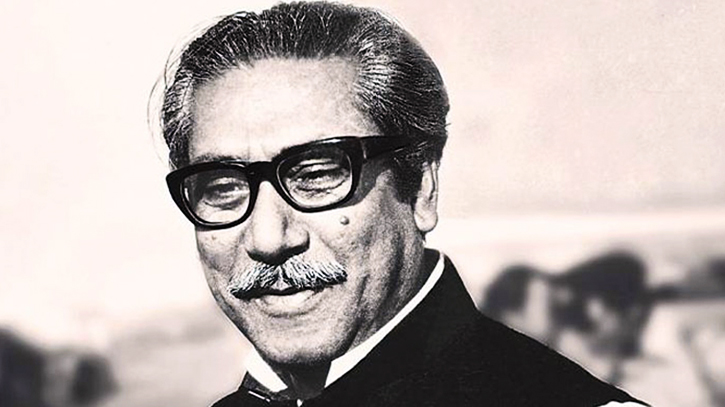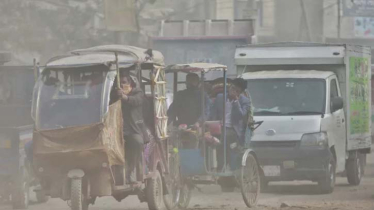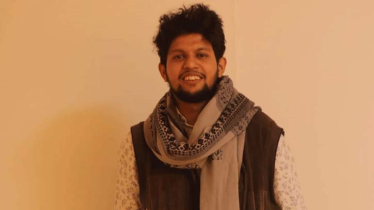
Father of the Nation Bangabandhu Sheikh Mujibur Rahman. Photo: Collected
In the annals of history, 16 December 1971 is etched as an enduring symbol of freedom, commemorating the triumphant emergence of Bangladesh from the shadows of oppression.
Orchestrated by Lieutenant General JFR Jacob, Chief of Staff of India's Eastern Army, the surrender ceremony became a poignant punctuation to a harrowing chapter, heralding the dawn of a new nation. This historic event not only marked the end of a struggle for independence, but also symbolised the birth of Bangladesh as a sovereign and free entity.
The backdrop to this historic moment was the culmination of a relentless struggle that began with the birth of the Mukti Bahini, the guerrilla force fighting for Bangladesh's liberation. As they entered Dhaka city, the Indian forces closed in on the outskirts, dealing a decisive blow to the occupying Pakistani army. The fear and anxiety that had gripped the nation for nine months began to fade, replaced by the hope of victory and freedom.
The days leading up to the surrender were fraught with tension. Fighter planes circled overhead, and mandatory blackouts at night created an atmosphere of uncertainty. Leaflets urging the Pakistani forces to "lay down arms before the time runs out" were dropped from planes, while the occupying army's morale plummeted.
On December 16, 1971, at around 1:00 pm, Lieutenant General JFR Jacob reached the Pakistani forces' headquarters to discuss the terms of surrender with Lieutenant General AAK Niazi, the military commander of Pakistan's Eastern Command. In his book, "Surrender at Dacca: Birth of a Nation," Jacob vividly describes the pivotal moment.
Colonel [MH] Khara read out the terms of surrender, and a palpable silence filled the room. Tears streamed down Niazi's cheeks as Major General Rao Farman Ali objected to surrendering unconditionally. Niazi, expecting a document outlining conditions for a ceasefire and evacuation under UN arrangements, was confronted with the reality of unconditional surrender.
Jacob reassured Niazi that they would be treated with dignity, emphasising adherence to the Geneva Convention and respect for all ethnic minorities. "These guarantees and clauses in the instrument of surrender are unique and are not found in any other surrender documents," Jacob wrote.
As the Pakistani forces deliberated, Niazi passed the document around, seeking changes. Jacob, standing firm on the already generous terms, left the room, allowing the Pakistanis to consider their fate.
Returning to the room later, Jacob asked Niazi if the document was acceptable. Without comment, Niazi handed it back, signaling acceptance.
The surrender ceremony's modalities were then discussed, and Niazi expressed a preference for it to take place in his office. Jacob, however, insisted that the historic event unfold at the Ramna Race Course, now Suhrawardy Udyan.
The surrender at Suhrawardy Udyan marked the formal end of the Bangladesh Liberation War, cementing December 16 as Victory Day and forever etching the surrender ceremony into the collective memory of a nation born from the struggle for freedom.
Meanwhile, the nation is set to celebrate the Victory Day, the most precious day of the Bangalees, today as the country was liberated from the Pakistani occupation forces on that day 52 years back after a nine-month-long bloodstained War of Liberation.
On December 16 in 1971, Bangladesh was born as an independent country under the leadership of Father of the Nation Bangabandhu Sheikh Mujibur Rahman at the cost of supreme sacrifice of three million people and the honour of nearly half a million women.
The day is a public holiday.
Important buildings and structures will be illuminated. Besides, important roads and road islands in the capital and other cities across the country will be decorated with national flags and colourful festoons. Bands of different forces will play music at various important places.
National dailies will bring out special supplements highlighting the significance of the day while electronic media will broadcast month-long special programmes based on the Liberation War.
Messenger/Sun Yath








